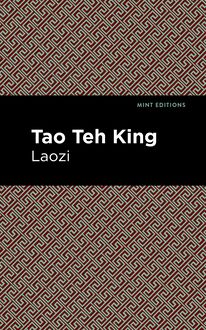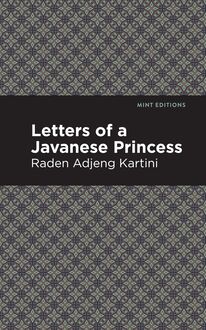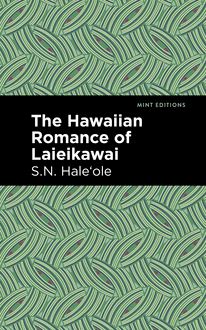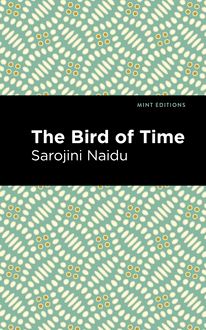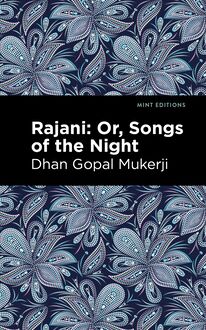-
 Univers
Univers
-
 Ebooks
Ebooks
-
 Livres audio
Livres audio
-
 Presse
Presse
-
 Podcasts
Podcasts
-
 BD
BD
-
 Documents
Documents
-
- Cours
- Révisions
- Ressources pédagogiques
- Sciences de l’éducation
- Manuels scolaires
- Langues
- Travaux de classe
- Annales de BEP
- Etudes supérieures
- Maternelle et primaire
- Fiches de lecture
- Orientation scolaire
- Méthodologie
- Corrigés de devoir
- Annales d’examens et concours
- Annales du bac
- Annales du brevet
- Rapports de stage
La lecture à portée de main

Vous pourrez modifier la taille du texte de cet ouvrage
Découvre YouScribe en t'inscrivant gratuitement
Je m'inscrisDécouvre YouScribe en t'inscrivant gratuitement
Je m'inscrisEn savoir plus
Vous pourrez modifier la taille du texte de cet ouvrage
En savoir plus

Description
The Wooing of Wistaria follows the life of a vicarious and bubbly young Japanese woman, Lady Wistaria. Beginning with her presentation to high society, Wistaria reflects on her experience meeting the court. Accompanied by her aunt, who was her guardian, Wistaria visits the capitol city for the first time, enamored by the sights. She enters the court knowing all that was expected of her. The court is in awe of her beauty, but when Wistaria makes a small mistake, she is immediately shamed. Though Wistaria is kind, beautiful, and full of personality, she is consistently judged throughout her life for her qualities that conflict with society’s standards. This is especially evident in her relationship to her father, who is a stoic and harsh man. Dedicated to upholding the social expectations and etiquette, Wistaria’s father is tough on her, and despite her reflections, Wistaria never really understands why.
Through the depiction of Lady Wistaria’s life, The Wooing of Wistaria by Onoto Watanna provides representation of Asian heritage and aspects of 20th century Japanese society, allowing readers a privileged perspective into the culture. Featuring beautiful and detailed descriptions of Japanese landscapes, the physical environment of Japan is represented as vividly as the cultural and social atmosphere. With themes of gender and sexuality, The Wooing of Wistaria is thought-provoking and enlightening on the constructs of Asian femininity. Through the characterization of Lady Wistaria, The Wooing of Wistaria portrays a bright and cheery young woman who does not fit the role she is expected to fill.
First published in the early years of the 20th century, The Wooing of Wistaria by Onoto Watanna has rarely been in print since its original publication. This special edition features a stunning cover design and is printed in an easy-to-read font. With these accommodations, this edition caters to contemporary readers by restoring the novel to modern standards while preserving the original intricacy of Onoto Watanna’s work.
Sujets
Informations
| Publié par | Mint Editions |
| Date de parution | 23 février 2021 |
| Nombre de lectures | 0 |
| EAN13 | 9781513276533 |
| Langue | English |
| Poids de l'ouvrage | 1 Mo |
Informations légales : prix de location à la page 0,0500€. Cette information est donnée uniquement à titre indicatif conformément à la législation en vigueur.
Extrait
The Wooing of Wistaria
Onoto Watanna
The Wooing of Wistaria was first published in 1902.
This edition published by Mint Editions 2021.
ISBN 9781513271538 | E-ISBN 9781513276533
Published by Mint Editions®
minteditionbooks.com
Publishing Director: Jennifer Newens
Design & Production: Rachel Lopez Metzger
Project Manager: Micaela Clark
Typesetting: Westchester Publishing Services
C ONTENTS I II III IV V VI VII VIII IX X XI XII XIII XIV XV XVI XVII XVIII XIX XX XXI XXII XXIII XXIV XXV XXVI XXVII XXVIII XXIX XXX XXXI XXXII XXXIII XXXIV XXXV XXXVI XXXVII XXXVIII XXXIX XL XLI XLII
I
When after a life that had never lacked variety the Lady Wistaria came to the years of tranquility, she was wont to say, with the philosophy that follows dangerous times: “No one, man or maid, ever really began to live before the time to which the first memory reverts.”
The first recollection of the Lady Wistaria goes back to an earlier childhood than that of most mortals. This she ascribed to its terrible and awful import. She could scarcely do more than move with the uncertain direction of babyhood, when her father, always now in her memory as gaunt, lean, haggard, tall, had taken her upon a long journey. They had travelled partly by kurumaya, and, towards the end, on foot. That is, her father had walked, carrying her on high in his arms.
When they halted at Yedo they stood amid a vast concourse of people, who remained silent and respectful against the background of the buildings, while in the centre of the road marched steadily and pompously a great glittering pageant.
Wistaria had clapped her hands with glee and delight at the mass of color, the glimmer of shield and breastplate, the prancing, snorting horses. But her father suddenly had raised an enormous hand and in a moment had stopped her delight. Wistaria lapsed into an acute silence.
Instantly she was awakened from her painful apathy by her father, who moved her higher in his arms, and turned her head slowly about with one hand, while with the other he pointed to a shining personage reclining in a palanquin borne high on the shoulders of ten stout-legged attendants.
“My daughter,” said her father’s hollow voice in her ear, “yonder rides the man who killed your mother. It is through his crime that you are orphaned and have no mother to care for you and love you. Look at him well! Hush! Do not weep or shake with fear, but turn your eyes upon him. Look at him! Look! Look! Yonder rides your mother’s murderer. Do not forget his face as long as you live. It is your duty to remember it!”
Whereupon Wistaria, who, in obedience to her father’s commands, had stared with wide eyes fixedly at the reclining noble, set up a most extraordinary cry. It was unlike that of a little child—a wild, wailing shriek, so weird and piteous that the by-standers started in horror and fear. The noble raised himself lazily on his elbow, staring across the heads of all, until his eyes rested upon the man with the child held on high. He fell back with an uneasy shrug of the shoulders.
That was the Lady Wistaria’s oldest memory. There were others, but none so vivid as this, the first of all. Even later, when she had ceased to be a child, she had been unable to pierce the mystery of her father’s life, or indeed her own.
One half of her earlier years had been spent in a small, whitewashed cottage, built on the crest of a little wind-blown hill, far enough removed from the dwellings in the village below to be entirely cut off from them.
There was a touch of the uncanny and weird about the little village, whose slender streets, ascending and descending, zigzagging up and down, disappeared among hillocks and bluffs, though built in reality in the hollow outskirts of a flourishing city at the foot of a small chain of mountains. Though the land here was green and beautiful at all times of the year, there came no one from the great city beyond to this solitary settlement, whose inhabitants bore the impress of toil, pain, and oppression.
Why her father, who, she had been told, was of noble blood, resided here on this hill-top, isolated even from the strange people who dwelt in the silent village below, the Lady Wistaria had never learned. When she had questioned her uncle and aunt, she had been frigidly informed that curiosity and inquisitiveness were degrading traits, which a maiden should strive with all her strength to overcome. Neither did she ask her father, who, taciturn and cold during her brief residence each year in his house, gave her no opportunity for winning his confidence. His love Wistaria had never dreamed of possessing.
Nevertheless, whenever she went to her father’s house, a wistful longing and yearning for him possessed her whole being, and when she departed she would hide her face in her sleeve, weeping silently, not knowing why she should weep, and scarcely conscious of the fact that she wept for lack of her father’s love.
In her father’s house there were no servants, no maids, no attendants—only one weazened, blind, and infinitely old woman, who wept tears from her sightless eyes upon her arrival, who sang and crooned to her at night in a sobbing, sighing voice, that was as sweet and pure as a girl’s.
She addressed the old woman as “Madame Mume,” and preserved always towards her the reserved and dignified attitude of the mistress to the maid. Yet her father addressed her as “Mother.” Wistaria knew the old woman was not his mother, and she could not believe she was even akin to them; for had she not always been taught that the family from which she was descended was one of the oldest and noblest in Japan, while old Madame Mume, though gentle and good, wore the garb of the poor heimin.
The other half of her childhood had been spent at the home of her uncle. Here were countless retainers and servants, besides a host of samurai, petty vassals, soldiers, peasants, and citizens, who lived upon his land and owed their direct allegiance to him.
The garden walls surrounding her uncle’s palace were tall and of massive structure, built of solid stone. Its gates were guarded by handsome, bold samurai clad in thick armor. The steel upon their breasts and shoulders glistened with a sinister sheen, and beneath their blazing helmets fierce eyes burned out their unswerving allegiance and loyalty to their lord and their scorn and defiance of all his enemies. Their coats, all emblazoned and embroidered with golden dragons, bore two crests, that of the Shogun Iyesada, and that of the powerful Daimio under whom they served, the Lord of Catzu, uncle of the Lady Wistaria.
Here in her uncle’s palace Wistaria was watched over, cared for, nurtured, and refined. Lackeys and servants were about her on all sides, ready to spring to her service. As a child she had attended a private school, kept by an old samurai, where with half a dozen other little girls she had squatted on small, padded mats before writing-tables but twelve inches high, and had been taught the intricacies of the language. Two gorgeously liveried attendants always accompanied her to and from the school-house, carrying her books, her writing-box, her kneeling-cushion, and her little table.
When she grew older she attended the elementary school. After she had left this, a silent woman of perfect manners and exquisite appearance had come to her uncle’s palace and attached herself entirely to her. With the coming of this governess, Wistaria ceased to pay her annual visits to her father’s house. He himself came to the palace instead, once every year. Upon these occasions Wistaria was brought into his presence. He would put a few stern questions to her concerning her knowledge of her duty to her parents, to which Wistaria would respond with expressions of filial submission to his will in all things.
From the governess, Wistaria learned the elegancies of conversation and how to act on meeting great personages at court. She had even been drilled in certain graces which should not fail to enchain her lover, when he, the proper one, should be chosen for her.
Now that she had reached the age of fifteen years, this perfect person had departed from the palace to teach maidens of younger years. The Lady Wistaria had arrived at an age when she could be said to have been graduated from her governess’s hands as competent to pass the rest of her life without further instruction, save that constant restraint exercised over her by her aunt, the Lady Evening Glory of Catzu.
II
The education of a Japanese maid is not alone a matter of cultivating the mind; it is an actual moulding of her whole character. The average girl under such discipline succumbs to the hereditary instinct of implicit obedience to her dictators, and becomes like unto their conception of what she should be. But the Lady Wistaria was not an average girl. That is the reason her appearance at the court of the Shogun in Yedo created a furore. Her fresh, young beauty, her grace and bewitching charm, were a revelation to the jaded court.
The Lady Evening Glory, who had spent years of thought and preparation for this event, had warned her repeatedly that upon such an auspicious occasion she was to tread across the vast hall with downcast eyes and an attitude of graceful humility. She was on no account to look about her. While all eyes might gaze upon her, she must see no one. And this is how the Lady Wistaria carried out her instructions.
When first she began the slow parade towards the Shogun’s throne, my lady’s head was drooped in the correct pose, with her eyes modestly downcast. She had proceeded but a few paces, however, when she was thrilled by the intuition that the spectacle was worthy of any sacrifice necessary to see it. Her small head began to erect itself. Her eyes, wide open, with one great sweep viewed the splendor of the picture—the graceful courtiers, the lovely women in their costumes of the sun. A sharp pinch upon the arm brought her back to
Attention
En entrant sur cette page, vous certifiez :
- 1. avoir atteint l'âge légal de majorité de votre pays de résidence.
- 2. avoir pris connaissance du caractère érotique de ce document.
- 3. vous engager à ne pas diffuser le contenu de ce document.
- 4. consulter ce document à titre purement personnel en n'impliquant aucune société ou organisme d'État.
- 5. vous engager à mettre en oeuvre tous les moyens existants à ce jour pour empêcher n'importe quel mineur d'accéder à ce document.
- 6. déclarer n'être choqué(e) par aucun type de sexualité.
YouScribe ne pourra pas être tenu responsable en cas de non-respect des points précédemment énumérés. Bonne lecture !
-
 Univers
Univers
-
 Ebooks
Ebooks
-
 Livres audio
Livres audio
-
 Presse
Presse
-
 Podcasts
Podcasts
-
 BD
BD
-
 Documents
Documents
-
Jeunesse
-
Littérature
-
Ressources professionnelles
-
Santé et bien-être
-
Savoirs
-
Education
-
Loisirs et hobbies
-
Art, musique et cinéma
-
Actualité et débat de société
-
Jeunesse
-
Littérature
-
Ressources professionnelles
-
Santé et bien-être
-
Savoirs
-
Education
-
Loisirs et hobbies
-
Art, musique et cinéma
-
Actualité et débat de société
-
Actualités
-
Lifestyle
-
Presse jeunesse
-
Presse professionnelle
-
Pratique
-
Presse sportive
-
Presse internationale
-
Culture & Médias
-
Action et Aventures
-
Science-fiction et Fantasy
-
Société
-
Jeunesse
-
Littérature
-
Ressources professionnelles
-
Santé et bien-être
-
Savoirs
-
Education
-
Loisirs et hobbies
-
Art, musique et cinéma
-
Actualité et débat de société
- Cours
- Révisions
- Ressources pédagogiques
- Sciences de l’éducation
- Manuels scolaires
- Langues
- Travaux de classe
- Annales de BEP
- Etudes supérieures
- Maternelle et primaire
- Fiches de lecture
- Orientation scolaire
- Méthodologie
- Corrigés de devoir
- Annales d’examens et concours
- Annales du bac
- Annales du brevet
- Rapports de stage

